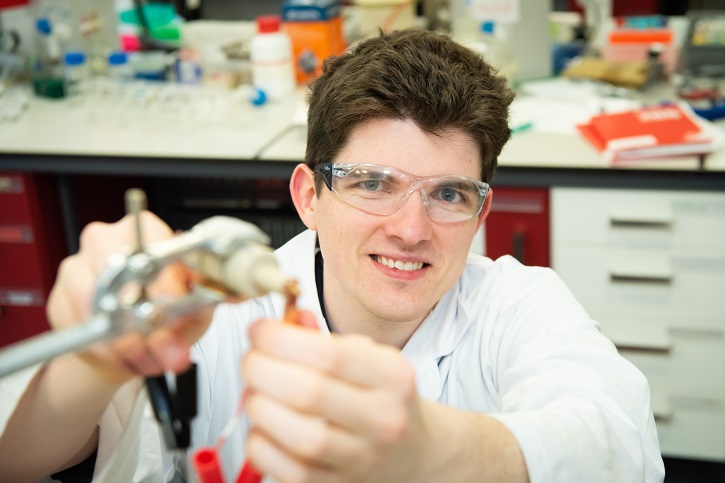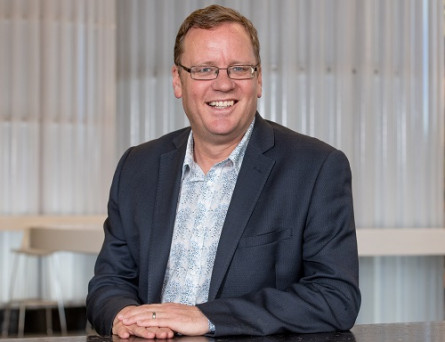Today’s supercapacitors use highly corrosive, toxic electrolytes. Our electrolyte technology uses water-based materials which significantly reduces the toxicity of the supercapacitor and could help reduce any end of life considerations associated with disposal.

PhD student, Fraser Hughson
As fossil fuels become scarcer, the need to harvest and store energy from renewable sources has become more urgent. Batteries are increasingly being used in a suite of applications to help store and release energy for long periods of time. However, batteries take a long time to charge and are not suited to applications where energy is needed quickly. Supercapacitors are commonly used in high power applications that need energy quickly.
While supercapacitors are gaining traction in the marketplace (e.g. to help with accelerating a car or quickly stabilising supply and demand in a power grid), their electrolytes are highly toxic, corrosive and expensive to produce.
Fraser Hughson, a Victoria University of Wellington PhD student has discovered and developed a technology that could disrupt the way supercapacitors are made today—potentially achieving the same voltage as existing supercapacitors, while making them cheaper and more sustainable to produce.
Features and benefits
Sustainable materials
Lower cost, similar performance
To achieve acceptable performance, existing supercapacitors use expensive electrolytes which can reach up to 80% of the total cost of the supercapacitor. By avoiding expensive electrolytes such as “ionic liquids” and using aqueous materials, our supercapacitor can significantly reduce the cost without compromising performance.
Next steps
Wellington UniVentures sees strong market potential in this technology—including electricity generators/distributors and transport operators—and is helping the inventor to understand the market more fully, and to accelerate his commercialisation programme. The critical next steps for this project include:
- Conducting further market validation with existing supercapacitor manufacturers and industry
- Ongoing development and refinement of proof of concept supercapacitors
- Engagement with investors to validate start-up opportunity.

